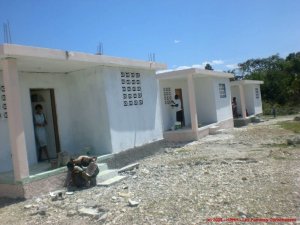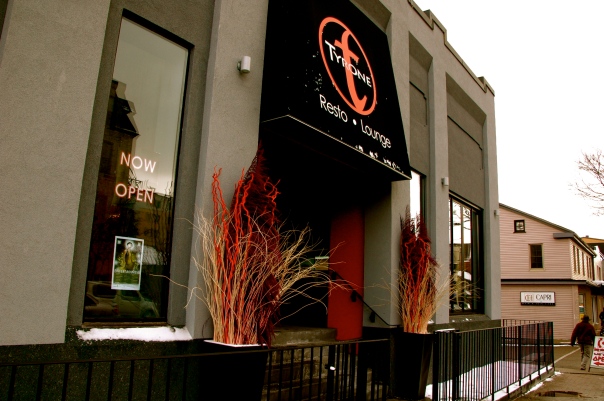The below interview is copied in full from the UW Daily Bulletin, September 8, 2010. (This is indeed a central starting point to all students interested in what’s going on at the university.)
“I’ve got to keep things moving forward,” says Mark Seasons, though he doesn’t know how long he’ll be in his current leadership position as dean of the Faculty of Environment.
He was named “interim dean” as of July 1, when Deep Saini cut his five-year deanship short to move to a senior position at the University of Toronto. Seasons, who had previously been associate dean (undergraduate studies), will be in the dean’s office until a search for a longer-term dean is completed.
![[Seasons]](https://i0.wp.com/www.bulletin.uwaterloo.ca/images/2010/0701seasons.jpg) “I’m really enjoying it, for some reason,” he said in a conversation last week in his office in Environment 1 — a short walk down the hall from the project that dominates the dean’s attention these days, the half-finished Environment 3 building.
“I’m really enjoying it, for some reason,” he said in a conversation last week in his office in Environment 1 — a short walk down the hall from the project that dominates the dean’s attention these days, the half-finished Environment 3 building.
“We have to be on time,” Seasons (right) says about the construction project, which is powered by federal stimulus funding that disappears, pumpkin-like, if projects aren’t finished by March 31.
“I have no question it will be done,” he quickly adds, moving to the point about EV3 that he finds really important: its anticipated “platinum” rating from the Leadership in Energy & Environmental Design certification system. The building will feature solar power, energy conservation (including insulation), “grey water” and rainwater recycling systems, and high-efficiency lighting.
All these things come at a price, but one that Seasons says is worth paying, for long-term savings and also for what the building will say about Waterloo and the Environment faculty to future students, potential faculty members and the rest of the university. “We are leading by example,” he declares.
He jokes that ENV, which used to be the smallest faculty in the university, has grown to the point that it’s now the fifth largest. (There are six faculties; applied health sciences is now in sixth place.) And he says it has much to offer to the rest of the university, as its central concerns, such as water and energy, “are hot geopolitical topics” these days.
Yes, researchers and students in other fields may touch on relevant subject matter (the university has “environmental science” and “environmental engineering” programs based in other faculties). But it’s specifically the Faculty of Environment that connects the technical knowledge to action — “behavioural change and policy change, the ‘now what’ and ‘so what’,” he says. “No other faculty on the campus does quite that, I think. You’ve got to make a compelling business case for the environment, or people won’t change behaviour. It’s not just tree-hugging — it’s far more pragmatic.”
That leads to some of the new programs that ENV has introduced, largely under Saini’s leadership, including environment-and-business, already the biggest program in the faculty. (The first class of students in the e-and-b master’s program, taught largely online, has just had its first two-week “block course” on campus, an experience Seasons says was a big success.) It’s run by the School of Environment, Enterprise and Development, created “to pull together things that were complementary, but that were drifting” or didn’t have a clear academic home.
In all the academic programs, “we’re trying to create a pragmatic idealist,” says the dean. He mentions a curriculum review that would involve putting together a package of core courses to make sure students from all programs are exposed to environmental ethics, decision-making skills and other overarching skills.
“My position,” he says as the fall term gets going, “is to move the agenda forward that Deep had — but I’m also here with some ideas of my own.” Some of those ideas come from his background as a professional planner, whose last job before he came to Waterloo in 1988 was with the National Capital Commission in Ottawa.
In Waterloo, he’s had some involvement in advising governments at the municipal and regional levels, on issues such as downtown revitalization and the “desperate” condition of car-dependent suburbs. Experience in government agencies gives him a certain view of administration, he says, observing that the job of a dean “is a manager’s job, it’s not an academic job”.
Within the faculty, he’s pleased to find “a really really good administrative team” and “a basic culture that’s intact across the building”, so that faculty members feel “really useful — not rent by ideology at all. This is a really interdisciplinary crowd here; that makes it fun.”
But the interim deanship is “a serious position to be in, and one that I don’t take lightly at all” even though the appointment is for only a few months, he says. “I can’t be a lame-duck interim — I’ve got to keep things moving forward.”
43.467780
-80.542134



![[Seasons]](https://i0.wp.com/www.bulletin.uwaterloo.ca/images/2010/0701seasons.jpg) “I’m really enjoying it, for some reason,” he said in a conversation last week in his office in Environment 1 — a short walk down the hall from the project that dominates the dean’s attention these days, the half-finished Environment 3 building.
“I’m really enjoying it, for some reason,” he said in a conversation last week in his office in Environment 1 — a short walk down the hall from the project that dominates the dean’s attention these days, the half-finished Environment 3 building.






